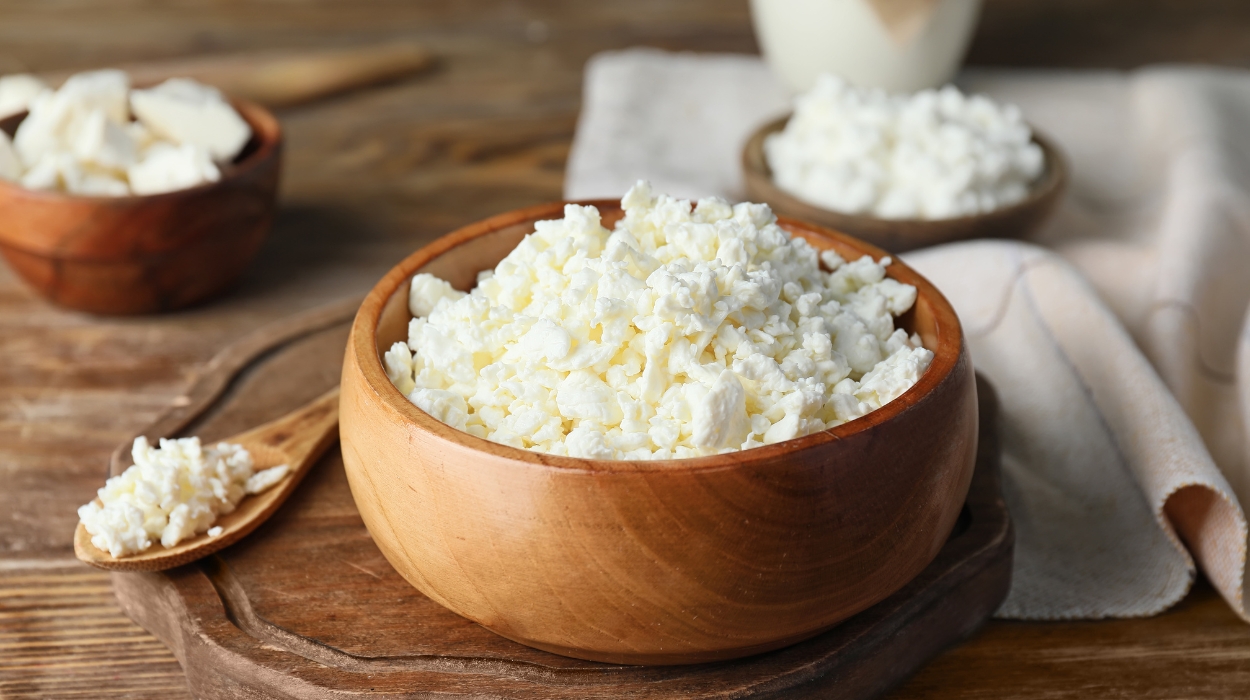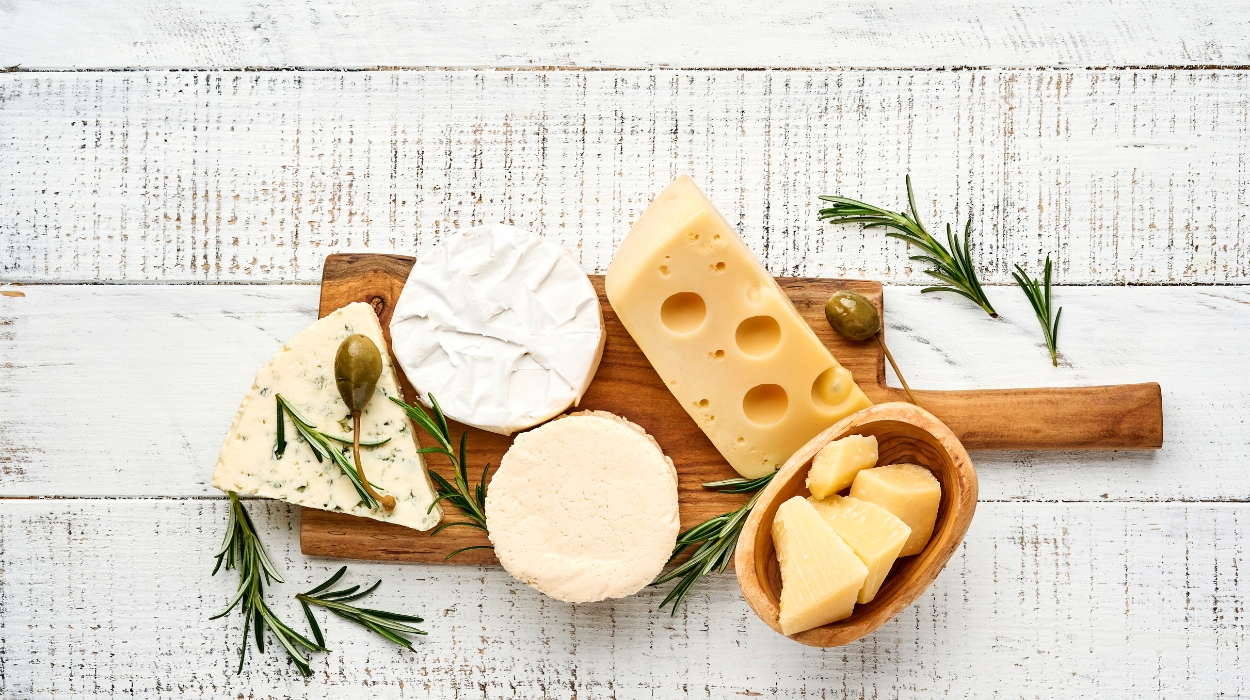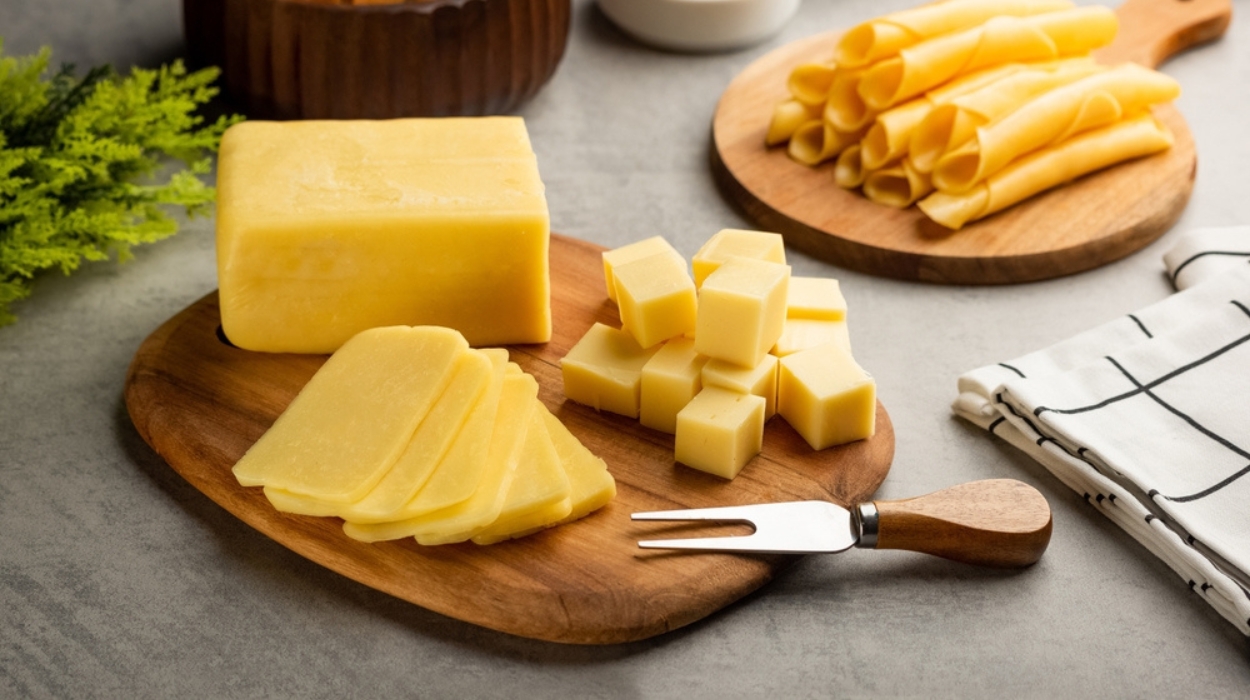Is cheese good for weight loss?
Cheese, in all its delicious forms, is considered both nutritious and high in fat, making it an indulgent choice for some. However, you do not need to avoid cheese if you’re trying to lose weight completely. It is possible to enjoy cheese while maintaining a low-calorie, balanced diet.
Are you curious to know whether cheese can help you burn belly fat or not? In the article, we will explore cheese’s nutritional value and identify which cheese types are healthiest and most effective for weight loss. Read on to find tips on incorporating cheese into a balanced diet and ways to use it to help you on your weight loss journey.
Is Cheese Good For Weight Loss?
Using cheese for weight loss is possible if you use portion control and choose low-fat cheese options.
Cheese can be part of a healthy, balanced diet and support your weight loss goals when chosen carefully and eaten in moderation.
Is Cheese Good For Weight Loss?

Cheese lovers on a weight loss journey, you can include cheese in your diet plan and still achieve your goals. It all comes down to how much cheese you eat and what kind you choose to include in your meals. Snacking a moderate amount of cheese as part of a balanced diet and active lifestyle is perfectly fine.
In fact, including some cheese in your diet may even help you to lose weight. Being high in protein and saturated fat, cheese will help you to feel full for longer. The added flavor of some cheese in your meals can leave you feeling more satisfied and energized and less likely to overeat unhealthy foods.
Be mindful of the high sodium[1] content in cheese, as it is associated with weight gain. Opt for low-sodium and fresh cheese, avoiding over-processed options. Extend this habit to all your food choices to contribute to a healthier diet, and aim for a daily sodium intake of less than 2,300 mg.
This will help you to eliminate unnecessary salts and fats from your diet. Eating smaller meals and following an energy-restricted diet[2] is a good option for managing weight gain. Consider prepping healthy food ahead of meal times; this can help you make healthier, low-fat choices in moments when you arrive home overwhelmed with hunger and tempted to grab a big chunk of cheese.
The Nutritional Value Of Cheese
Let’s look at cheese’s nutritional value and why it’s good for a diet. As a food choice, it is packed with lots of vital nutrients, fats, and protein.[3] Cheese contains polyunsaturated, monounsaturated, and saturated fat. However, the exact amount can depend on which cheese you eat.
According to the USDA,[4] a typical one-ounce serving of cheddar cheese contains:
- Calcium: 199mg.
- B12: 0.246mg.
- Vitamin K: 3.082mg.
- Calories: 115 Cal.
It is also a great source of protein, as most cheeses contain quite a high amount. Studies have shown that high protein diets[5] benefit body weight reduction. High protein diets have been shown to help you lose weight and also keep the weight off long term.
Cheese is also a good source of calcium, which is essential for your bones and teeth. In addition to this, getting enough calcium in your diet can help you burn stored fat. The mixture of calcium and protein can boost your metabolism.
It may also be good for lowering blood pressure and protecting your heart.[6] Cheese can be a good source of vitamins B12 and K, which are good for your blood and brain. The amounts can vary depending on the cheese.
Which Cheese Is Good For Weight Loss?

Are you wondering which cheeses to add to your diet? Keep on reading for tips on which kinds to add to your weight loss diet.
Quark
Quark is almost fat-free and very low in salt. It’s a fresh cheese with the benefits of being high in protein and nutrients. Think of adding it to smoothies or putting it on your toast in the morning for a nutritious breakfast.
Cottage Cheese
Cottage cheese, especially the low-fat kind, is a good cheese option to add to your diet. It’s a fresh curd cheese that can be used in many food recipes. It has a mild flavor and is delicious in salads, or why not add it to a bowl of fruit for a healthy snack?
Ricotta
Ricotta is another curd cheese made from whey, native to Italy, another fresh cheese option containing less salt and saturated fat. It is versatile and can be used in place of other cheeses. Ricotta is wonderful for savory and sweet dishes. Scoop some into a bowl and add honey for dessert.
Feta
Feta, a sheep/goat soft cheese, is low in fat but high in salt. Opt for low-fat varieties if you’re concerned about your sodium intake. Enjoy it in Greek salad or sprinkled on top of baked aubergines for a flavourful touch.
Mozzarella
Mozzarella is a semi-soft cheese made from cow or buffalo milk, often containing a high-fat content. Consider opting for a low-fat option. Experiment with chickpea flour to make pizza bases, topping it with homemade tomato sauce, oregano, and low-fat mozzarella—prepare in bulk and freeze for quick, convenient meals.
Tofu
Tofu is a great vegetarian and vegan alternative to cheese, made from curdled soybeans. It’s also an excellent source of protein and calcium, along with other minerals. Having a soft neutral flavor, it’s great marinaded and added to soups and stir-fries.
Eating Tips
Enrich Your Meals With Cheese
- Add a slice of high-protein cheese to your breakfast
Consider incorporating a slice of high-protein cheese into your breakfast routine. It can be a delicious addition to omelets, breakfast sandwiches, or whole-grain toast.
- Crumble cheese on your salads— Crumbly cheeses make excellent salad toppings, such as feta cheese or goat cheese. They add texture without overwhelming the flavor of your dish.
- Use cottage cheese as a veggie topper — Put a half-cup scoop on top of a baked potato or a salad.
- Make tofu burgers— As a protein pact and plant-based alternative, marinate and grill tofu slices. Place in a bun along with avocado and salad.
- Substitute mayonnaise for cheese— Instead of putting mayonnaise on your sandwiches and burgers, opt for a slice of low-fat cheese. It’s lower in calories and fat and a better source of protein.
- Grate cheese over pasta and soup— Add some texture and flavor to pasta and soup with a small amount of grated parmesan cheese.
Smart Portion Management
- Watch your portions— Consider portion sizes, especially with calorie-dense cheeses. Smaller amounts can still provide a burst of flavor without overloading your meal with excess calories.
Healthy Ingredient Choices
- Read the ingredients— When buying cheese, make sure to read the ingredients list. Choose cheeses with minimal additives and preservatives for a healthier option. Be cautious of cheeses with unwanted extras.
- Look for the sodium content— Keep an eye on the sodium content of cheese, especially if you’re watching your salt intake. Some cheeses, such as feta, can be high in salt; go for low-sodium options if needed.
Mindful Dietary Considerations
- Watch out if you are lactose intolerant— If you’re lactose intolerant, be mindful of your cheese choices. Hard cheeses, such as aged cheddar or Parmesan, typically contain lower levels of lactose and may be better tolerated.
Or, you can take the enzyme lactase to aid your digestion, breaking down the lactose in your gut so you don’t experience lactose intolerant symptoms.
- Be mindful of any symptoms such as acne or indigestion— Pay attention to how your body reacts to cheese. Some people may experience symptoms like acne or indigestion. Consider adjusting your intake or choosing alternative options if you notice any adverse effects.
A balanced diet, including a rainbow of fresh vegetables, whole grains, and lean cuts of meat, will help you lose weight. Choose to eat smaller amounts of certain foods. By restricting your calorie intake, you will see improvements in your waist size.
As well as preparing healthy snacks for yourself ahead of time, staying hydrated is essential. Vital for your well-being, water can also help you to lose weight. Sometimes, you might feel hungry when thirsty, and water can also help you burn calories.
Now that you have a well-considered diet plan which you follow alongside an active lifestyle consider adding a weight loss supplement. Depending on your goals and health needs, it could be a good option for you. Always be mindful that a supplement cannot be taken in place of healthy eating and lifestyle habits.
Conclusion
Cheese can be enjoyed as part of a balanced diet. It is a good source of nutrients, fats, and proteins, which are healthy when eaten in moderation. Be sure to watch your portion sizes and opt for lower-fat and low-salt cheeses if you are trying to lose weight. Vary your diet and include a balance of vegetables, legumes, whole grains, lean proteins, and cheese.
Choose fresh cheese options and avoid packaged and processed kinds. This will cut out unnecessary fats and salts from your meals. Making new food habits, such as prepping meals and portions, can help you reach your weight loss goals.
Frequently Asked Questions
Yes, you can eat cheese when trying to lose weight, as long as you are mindful about your portions and eat it in moderation with a balanced diet.
The best cheeses to consider eating for weight loss are fresh and soft cheeses. For example, cottage cheese, ricotta, feta, quark, and mozzarella are all good options, and low-fat versions can easily be found in the supermarket.
No, cheese is not a fat burner as such. However, it can be part of a varied and balanced diet, adding flavor and texture to dishes. Consider eating avocado, nuts, and mushrooms, all of which are foods that burn fat.
The healthiest cheese you can eat is fresh cheese, such as cottage cheese. You can also find reduced-fat cheese options.
 Evidence Based
Evidence Based
